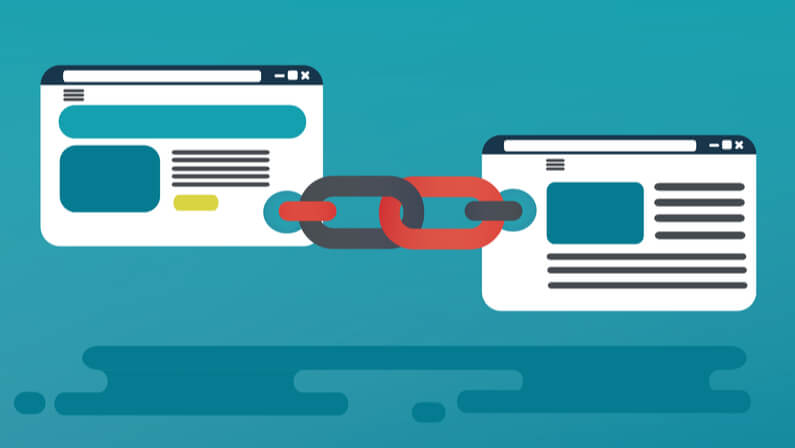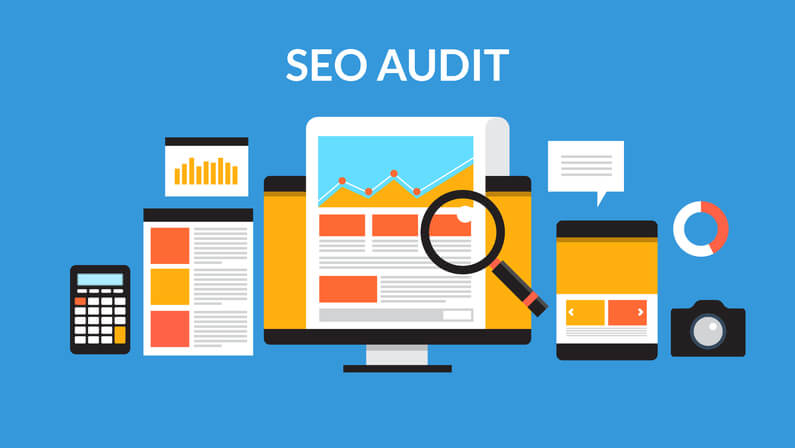If you’re a digital marketer, you know that SEO is one of the most important aspects of a successful online campaign. And if you’re not doing regular SEO audits, you’re missing out on a major opportunity to improve your site’s performance.
In this blog post, we’ll define what an SEO audit is, and we’ll share tips on how to conduct an SEO audit yourself. So read on to learn more!
What Is an SEO Audit?
An SEO audit is an analysis of your website’s search engine optimization. It can be used to identify areas where your site needs improvement and pinpoint any potential problems that could be holding it back from achieving its full potential.
There are many different factors that go into a successful SEO strategy, so it’s important to make sure that all of the bases are covered. An audit can help you do just that.

Why It’s Important To Audit Your Website Regularly
While the importance of an SEO audit cannot be doubted, it’s also a good idea to do one on a regular basis – even if nothing has changed. Why? Because the landscape of SEO is always changing.
What worked last year might not work this year, and what works today might not work tomorrow. So it’s important to stay on top of your game and ensure that your website is always up to date.
Benefits of SEO Audit
There are many different reasons why your website might need an SEO audit. Here are just a few:
An SEO Audit Identifies Your Website’s Technical Issues
One of the most important things an SEO audit can do is identify your website’s technical issues. There are a number of different technical aspects that can affect your site’s ranking, including:
- Page speed
- Mobile-friendliness
- Indexation
- Crawling
- Canonicalization
- Redirects
- Meta tags
- Schema markup
If any of these technical aspects are not up to par, it could negatively affect your website’s ranking. An audit can help you identify these issues so that you can fix them and improve your ranking.
Identifies Your Website’s On-Page Issues

In addition to technical issues, there are also a number of on-page factors that can affect your website’s ranking.
These include things like:
- Title tags
- Meta descriptions
- H1 tags
- Content
If any of these on-page elements are not optimized, it could be holding back your website from achieving its full potential. An audit can help you identify these issues so that you can fix them and improve your ranking.
Identifies Competition
By understanding what they’re doing right, you can adapt and improve your own strategy.
Some of the most important factors to look at when assessing competition include:
- Their keyword rankings
- Their backlink profile
- Their on-page optimization
- Their social media presence
By understanding what they’re doing right, you can adapt and improve your own strategy.
Identifies Your Backlinks

Your backlink profile is a major factor in your website’s ranking, so it’s important to make sure that it’s as strong as possible.
There are a number of different ways to assess your backlink profile, but some of the most important factors to look at include:
- The quality of your backlinks
- The quantity of your backlinks
- The diversity of your backlink sources
If any of these factors are not up to par, it could be negatively affecting your website’s ranking. An audit can help you identify these issues so that you can fix them and improve your ranking.
Helps You Build a Content Strategy
Your content is one of the most important factors in your website’s ranking. That’s why it’s so important to have a solid content strategy.
Some of the most important factors to consider when developing a content strategy include:
- Keywords
- Topic clusters
- Buyer personas
- Content types
An audit can help you understand your audience and what they’re looking for so that you can develop a content strategy that will help you improve your search rankings.
When To Perform an SEO Audit

Here are a few factors to consider when deciding when to perform an SEO audit:
- If you’re not happy with your website’s current ranking
- If you’ve made changes to your website and you’re not seeing the results you want
- If you haven’t performed an audit in a while and you want to make sure everything is still up to par
- If you’re noticing a decline in your website’s traffic
- If you’re planning on making changes to your website or your SEO strategy
- If you’re launching a new website
If any of these apply to you, it might be time to consider performing an audit.
How To Perform a Technical SEO Audit
Not sure where to start? Here are 9 simple steps to conducting a technical SEO audit:
Start by Crawling Your Website

This will help you identify any technical issues that might be holding back your website from achieving its full potential.
Some SEO tools you can use to crawl your website include:
- Screaming Frog
- DeepCrawl
- Sitebulb
Once you’ve crawled your website, take a look at the results and see if there are any technical issues such as broken links or 404 error that need to be addressed.
Review Sitemap & Robots.txt Files
Your sitemap and robots.txt files are two important files that can help you improve your website’s ranking.
Your sitemap is a file that contains a list of all the pages on your website. This helps search engines index your website more effectively.
Your robots.txt file is a file that tells search engines which pages on your website they should and shouldn’t index. This can help you control which pages show up in search results.
Make sure that both of these files are up to date and correctly configured.
Check the Browseable Versions of Your Website
Your website should be accessible to both humans and search engines.
Some of the most popular ways to check the browseable versions of your website include:
- Google Search Console
- Bing Webmaster Tools
- Screaming Frog
Check Internal Links
Your website’s internal linking structure is important for two main reasons:
- It helps search engines index your website more effectively.
- It helps visitors navigate your website more easily.
Make sure that your internal links are working properly and that they’re pointing to the correct pages.
Test Site Speed

Your website’s speed is important for two main reasons:
- It affects your ranking in search results.
- It affects the user experience.
Some tools you can use to test your website’s speed include:
- Google PageSpeed Insights
- Pingdom Tools
- GTmetrix
Check HTTPS Content
If your website is not served over HTTPS, you’re at a disadvantage.
HTTPS is a protocol that adds an extra layer of security to your website. It’s becoming increasingly important for both ranking and security reasons.
If your website is not served over HTTPS, you should switch to HTTPS as soon as possible.
Some of the most popular ways to check if your website is served over HTTPS include:
- Google Chrome DevTools
- Mozilla Firefox DevTools
Use Google Analytics to Compare Site Metrics

Google Analytics is a powerful tool that can help you track your website’s traffic and performance.
Use Google Analytics to compare your website’s current traffic and performance to its past traffic and performance. This will help you identify any areas of improvement.
Do a Backlink Audit
Your website’s backlink profile is important for two main reasons:
- It helps search engines index your website more effectively.
- It helps improve your website’s ranking.
Some tools you can use to audit your website’s backlinks include:
- Majestic SEO
- Moz Link Explorer
- Ahrefs
Re-Crawl Your Website
Once you’ve made changes to your website, it’s important to re-crawl it to make sure that the changes have been properly implemented.
Some tools you can use to crawl your website include:
- Screaming Frog
- DeepCrawl
- Sitebulb
Once you’ve crawled your website, take a look at the results and see if there are any technical issues that need to be addressed.
What To Expect During and After an SEO Audit?

An SEO audit can be a time-consuming process, depending on the size and complexity of your website.
During an SEO audit, you can expect to:
- Review your website’s structure and architecture.
- Analyze your website’s content.
- Evaluate your website’s backlink profile.
- Test your website’s speed and performance.
- Check your website for technical issues.
After you’ve completed an SEO audit, you should have a list of action items that need to be addressed.
Some of the most common action items include:
- Optimizing your website’s structure and architecture.
- improving your website’s content.
- Building more backlinks to your website.
- Improving your website’s speed and performance.
- Fixing technical issues on your website.
After you’ve addressed all of the action items, you should see an improvement in your website’s traffic and ranking.
Get Help From the Expert
If you’re looking for help getting started with SEO audits, or if you’d like someone to take care of the entire process for you, contact LeadOrigin. We offer comprehensive SEO services that will help your website rank higher in search engine results pages and drive more traffic to your site. Contact us today to learn more!






